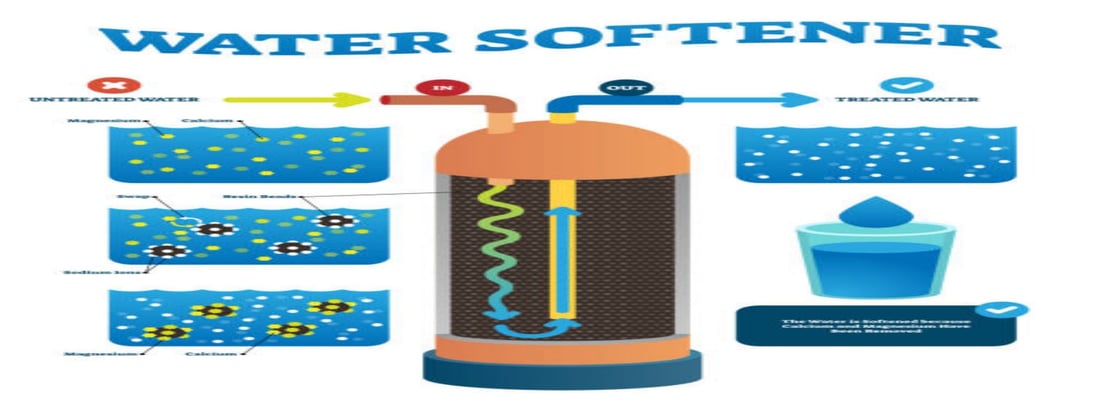Understanding the Importance of Resin Replacement in Water Softeners
Water softeners are essential for removing minerals like calcium and magnesium from your water supply, ensuring that your household appliances, pipes, and fixtures remain free from scale buildup. However, over time, the resin beads in your water softener can become worn out or damaged, leading to decreased efficiency and potential water quality issues. In this article, we will explore various signs that indicate the need for resin replacement in your softener.
1. Decreased Water Softening Efficiency
If you notice that your water softener isn't producing the same soft water as it used to, it could be a sign that the resin beads are no longer effectively removing the minerals from your water. This can result in hard water spots on dishes, soap scum in the shower, or a slimy feeling on your skin after washing.
2. Increased Water Hardness
Another indicator of resin depletion is an increase in water hardness. If you have noticed a resurgence of limescale buildup on your faucets, showerheads, or appliances, it may be time to replace the resin in your softener. Hard water can also lead to decreased soap lather and reduced cleaning efficiency.
3. Reduced Water Pressure
When resin beads become coated with minerals over time, they can hinder the flow of water through the softener. This can result in reduced water pressure throughout your plumbing system. If you have recently experienced a noticeable drop in water pressure, it may be due to clogged or exhausted resin beads in your softener.
4. Unusual Noises or Regeneration Cycles
If your water softener is making unusual noises during its regeneration cycle, it could be a sign of resin deterioration. Regeneration cycles occur when the softener cleans and recharges the resin beads, allowing them to continue removing minerals from the water. If the resin has degraded, the regeneration process may become less efficient, leading to abnormal sounds or prolonged regeneration cycles.
5. Age of the Water Softener
Most water softeners have a lifespan of around 10-15 years. If your softener is approaching or exceeding this age range, it is advisable to consider replacing the resin. Even if you haven't noticed any significant issues yet, the resin beads may have degraded over time, compromising the overall effectiveness of the softener.
6. Inaccurate Water Softener Readings
Many water softeners feature digital or analog displays that provide information about water hardness levels and regeneration cycles. If you notice inconsistent or inaccurate readings on your softener's display, it could be a sign that the resin needs replacement. Malfunctioning resin beads may result in faulty readings or an inability to properly measure water hardness.
7. Presence of Sediment or Discoloration
If you have noticed sediment or discoloration in your water supply, it could be an indication that the resin beads are deteriorating and releasing particles into the water. These particles can cause cloudiness, unusual tastes, or unpleasant odors. If these issues persist, it is recommended to have the resin in your softener replaced.
8. Water Softener Maintenance Difficulties
Regular maintenance is crucial for optimal performance of your water softener. However, if you find that you are constantly troubleshooting or repairing your softener, it may be a sign that the resin needs replacement. Excessive maintenance requirements can be a result of worn-out or damaged resin beads that no longer function effectively.
9. Professional Inspection and Evaluation
If you are unsure whether your water softener requires resin replacement, it is always a good idea to consult a professional. A qualified technician can inspect your softener, assess the condition of the resin beads, and provide expert advice on whether replacement is necessary. They can also guide you through the process of replacing the resin, ensuring proper installation and functionality.
10. Regular Resin Replacement Schedule
Lastly, it is important to follow the manufacturer's recommended resin replacement schedule. Different water softeners have varying lifespans for their resin beads, and adhering to the schedule can help prevent any issues associated with worn-out resin. Regular replacement ensures that your softener continues to provide optimal water-softening performance and extends the overall lifespan of the unit.
resin replacement, water softener, water hardness, resin beads, soft water, hard water, water pressure, regeneration cycles, water softener maintenance, professional inspection How Do I Know If I Need to Replace the Resin in My Softener? Learn the signs of resin depletion in water softeners and determine when it's time to replace the resin. Ensure your water softener continues to provide optimal performance.

